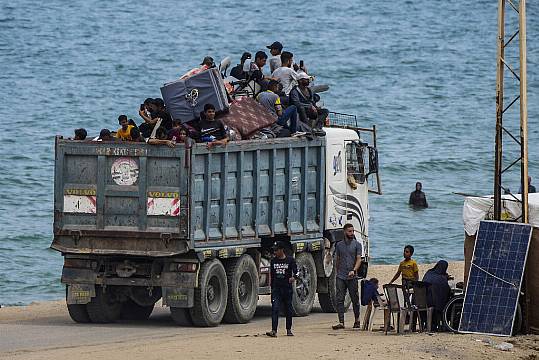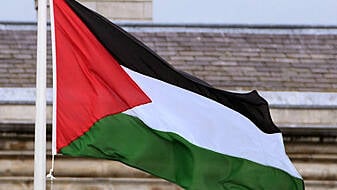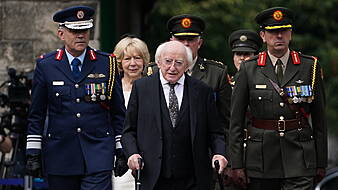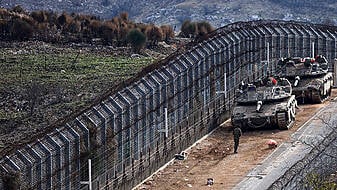Aid workers are struggling to distribute dwindling food and other supplies to hundreds of thousands of Palestinians displaced by what Israel says is a limited operation in Rafah, as the two main crossings near the southern Gaza city remain closed.
The United Nations’ agency for Palestinian refugees said 360,000 Palestinians have fled Rafah over the past week, out of 1.3 million who were sheltering there before the operation began, most of whom had already fled fighting elsewhere over the course of the seven-month war between Israel and Hamas.
Israel has portrayed Rafah as the last stronghold of the militant group, brushing off warnings from the United States and other allies that any major operation there would be catastrophic for civilians.
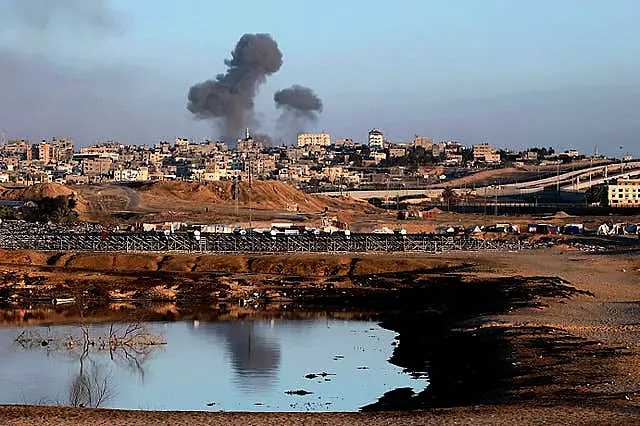
Hamas has meanwhile regrouped in some of the most devastated parts of Gaza that Israel had previously claimed to have cleared with heavy bombardment and ground operations.
Thirty-eight trucks of flour arrived through the Western Erez Crossing, a second access point to northern Gaza, Abeer Etefa, a spokeswoman for the UN’s World Food Programme, said.
Israel had announced the opening of the crossing on Sunday.
But no food has entered the two main crossings in southern Gaza for the past week.
The Rafah crossing into Egypt has been closed since Israeli troops seized it a week ago. Fighting in Rafah city has made it impossible for aid groups to access the nearby Kerem Shalom crossing with Israel, though Israel says it is allowing supply trucks to enter from its side.
For the past week, the Israeli military has intensified bombardment and other operations in Rafah, while ordering the population to evacuate from parts of the city.
Israel insists it is a limited operation focused on rooting out tunnels and other militant infrastructure along the border with Egypt.
Israeli forces were also battling Palestinian militants in Zeitoun and the urban Jabaliya refugee camp in northern Gaza, areas where the army had launched major operations earlier in the war.

Ms Etefa said WFP is distributing food from its remaining stocks in the areas of Khan Younis and Deir Balah further north to which many of those escaping Rafah have fled.
Inside Rafah, only two organisations partnering with WFP were still able to distribute food, and no bakeries were operating in the city.
“The majority of distributions have stopped due to the evacuation orders, displacement, and running out of food,” she said. “The situation is becoming increasingly unsustainable.”
Almost the entire population of Gaza relies on humanitarian groups’ distribution of food and other supplies to survive.
Amid Israeli restrictions and obstacles to aid distribution from violence, some 1.1 million Palestinians in Gaza face catastrophic levels of hunger, on the brink of starvation, and a “full-blown famine” is taking place in the north, according to the UN.
The director of the Kuwait Hospital, one of the last functioning medical centres in Rafah, said medical staff and residents living near the facility have been told to evacuate.
Sohaib al-Hams warned that any evacuation of the hospital itself would have “catastrophic consequences”.
Restricted humanitarian access is a matter of life or death for people in the #GazaStrip, who are already suffering amid relentless bombardments and food insecurity.
We immediately and urgently need safe passage for humanitarian aid and workers. pic.twitter.com/mXCWSpMkTN— UNRWA (@UNRWA) May 13, 2024
Israel has also ordered new evacuations in northern Gaza, even after hundreds of thousands of people fled in the opening weeks of the war.
Mahmoud Shalabi, the senior programme manager for Medical Aid for Palestinians, said he was recently ordered to relocate from Beit Lahiya in the far north to Gaza City.
“I have left my house several times now, along with my parents, who are both older than 70, my three children and my wife,” he said. “The journey of terror and displacement is beyond words.”
The war began when Hamas and other militants stormed into southern Israel on October 7th, killing around 1,200 people, mostly civilians, and taking another 250 hostage.
Militants still hold about 100 captives and the remains of more than 30 after most of the rest were released during a cease-fire last year.
Israel’s offensive has killed more than 35,000 Palestinians, mostly women and children, according to Gaza’s Health Ministry, which does not distinguish between civilians and combatants in its figures.
Israel says it has killed more than 13,000 militants, without providing evidence.
Israel marked an especially sombre Memorial Day on Monday, with ceremonies across the country commemorating fallen soldiers, including the more than 600 killed since October 7th, most in the initial attack.
During the day’s opening ceremony at Mount Herzl cemetery on the outskirts of Jerusalem, Israeli prime minister Binyamin Netanyahu vowed once again to defeat Hamas.
“We are determined to win this struggle. We exacted and will exact a high price from the enemy for their criminal acts. We will realise the goals of victory and at the centre of them the return of all our hostages home,” he said.
